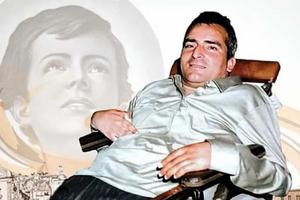Partial-Birth Veto Won't Defeat Clinton, But Could Hurt Dems
IF BOB DOLE can pull close to President Bill Clinton in key states in the final days leading up to the Nov. 5 election and play up his pro-life credentials, Clinton's veto of the Partial-Birth Abortion Ban Actmay come back to haunt him, say some observers.
“The pro-life issue, since 1980, has had a significant effect on the national elections,”said Carl Anderson, vice president for public policy with the Knights of Columbus in Washington.“The degree of effect it will have on this election depends on the closeness of the race and the extent to which the candidates make it an issue.”
While Clinton's veto of the bill that would have banned a late-term abortion procedure was unpopular with many voters, it seems unlikely that it will keep the president, who had a double-digit lead in pollsinlateOctober,frombeingreelectedin November.
“Clinton's veto of the partial-birth abortion ban ought to be the determination in the presidential race, but I don't see any indication that it will be,”said Father Robert Sirico, president of The Acton Institute, a conservative think tank in Grand Rapids, Mich.“That says a whole lot about the state of our nation and, even more lamentably, the Church,”he added, even though the U.S. bishops made a strong stand for overriding President Clinton's veto.
The prospects for Dole look grim, but some prolifers have higher hopes for congressional elections. Andersonpointedoutthatin1994nopro-life incumbents lost, and that an overwhelming number of the freshmen congressmen who were elected were pro-life. He argues that the postcard campaign and television and newsprint ads that the Catholic bishops have waged around the partial-birth abortion issue may help to swing the election in key battlegroundstateslikeFlorida,Indiana,Kentucky, Michigan, Missouri and Ohio.“Partial-birth abortion issue cuts to the core of the abortion issue and favors pro-lifers,”said Anderson.
TheCatholicbishops' pro-lifeofficehas received a significant number of calls from voters who intend to switch votes in November because of abortion.“We've received [more than] 100 calls from people who've told us that they voted [for Clinton] in '92 but will never vote for him again,”said Susan Wills, assistant director for pro-life programs with the National Conference of Catholic Bishops (NCCB) in Washington.
“But Dole's not made enough of it as an issue,”added Wills,“and it's hard to overcome the disinclination people have towards the Dole campaign.”She also said that many non-churchgoers and other Americans are probably unin-formed about what a partial-birth abortion is.
Nonetheless, Mary McGrory, a Washington Post columnist who is pro-choice, wrung her hands in April when Clinton vetoed the bill that would have banned so-called partial-birth abortions. In a column after Clinton's veto, she described attending a party with Catholic liberals who were disgusted with Clinton and had no intention of voting for him in November. McGrory predicted that many Catholics who voted for Clinton in 1992 would not vote for him this year out of protest for his veto.
President Clinton has co-opted many popular Republican legislative initiatives—to improve his public image and bolster his image as a moderate, critics argue—but he has held steadfast to his opposition to any curtailing of access to abortion. While he may not lose the November election, critics argue that if pro-life politicians and their supporters capitalize on the issues, then Clinton's ban of the partial-birth abortion ban hurt pro-abortion politicians in the long term.
Jonathan Alter,acolumnistfor Newsweek who describes himself as pro-choice, says the partial-birth abortionissue “maybejustabouttheonlyissueworking against”Clinton and his supporters.“Not this year, perhaps, but the pro-choice forces are in danger of turning themselves into extremists on this one,”he said. Alter compared Clinton and his pro-choice supporters refusing to compromise with the National Rifle Association's refusal to budge on gun control issues.
Another observer downplayed rumors that multitudes of liberals were going to vote for Dole.“I've heard the stories of Catholics of a progressive persuasion who've declared they're not going to vote for [Clinton],”remarked Father Sirico.“But I don't see a broad-based, grass-roots movement”towards Dole as a result of Clinton's veto of the Partial-Birth Abortion Ban Act.
“It represents a profound failure of the Dole campaign that they haven't made the distinctions“—about late term abortions for people who don't traditionally support pro-life stances but are repulsed by partial-birth abortions—the priest said. Nonetheless, Father Sirico predicts that the presidential race will tighten prior to the election, and that, in a worse case scenario, the Republicans will hold control of the House of Representatives and Senate.
During their Oct. 9 debate in Florida, Vice President Al Gore and Republican vice presidential nominee Jack Kemp squared off on the partial-birth abortion ban. Following a question from moderator Jim Lehrer, Gore said that Clinton would have signed a bill that would have included exceptions for the threats to the life of the mother, while Kemp stated that Clinton rejected any compromise with Congress and that Dole would not have vetoed the ban.
In a September vote to override the president's veto, somepro-abortionpoliticians,suchasCatholicSens. DanielMoynihan(D-N.Y.)andPatrickLeahy(D-Vt.) broke with their party and voted to override Clinton's veto. Nonetheless, 45 percent of Catholic politicians in Congress voted with Clinton.
Catholics make up roughly a quarter of the United State'spopulation,butnearlyathirdofvoters. While Catholics remain a highly sought-after swing group that can determine an election, they exercise different prerogatives in casting their votes. Five of the largest groups of Catholic voters—if one can make such distinctions—are economic conservatives, immigrants, pro-lifers, economic and social liberals, and union members. It's difficult to imagine a more galvanizing issue than the Partial Birth Abortion Ban Act to move Catholics to vote as a bloc. Despite the hopes of Dole supporters, it doesn't appear that Clinton's veto is making enough of a difference.
Bill Murray is based in Rockville, Md.
- Keywords:
- November 3-9, 1996












